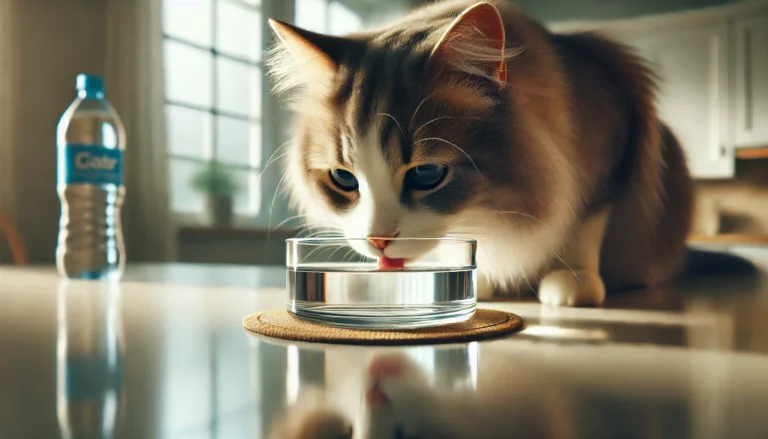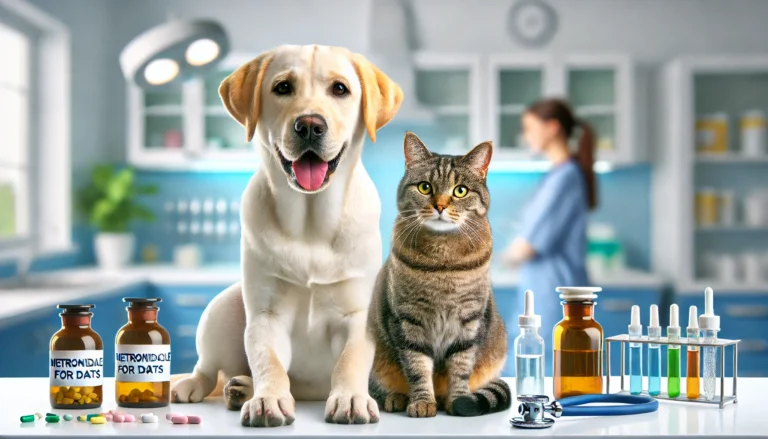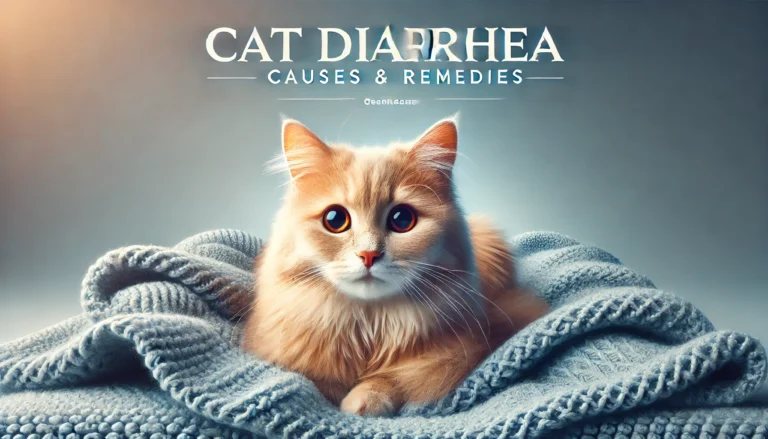Causes of Bad Odors in Cats
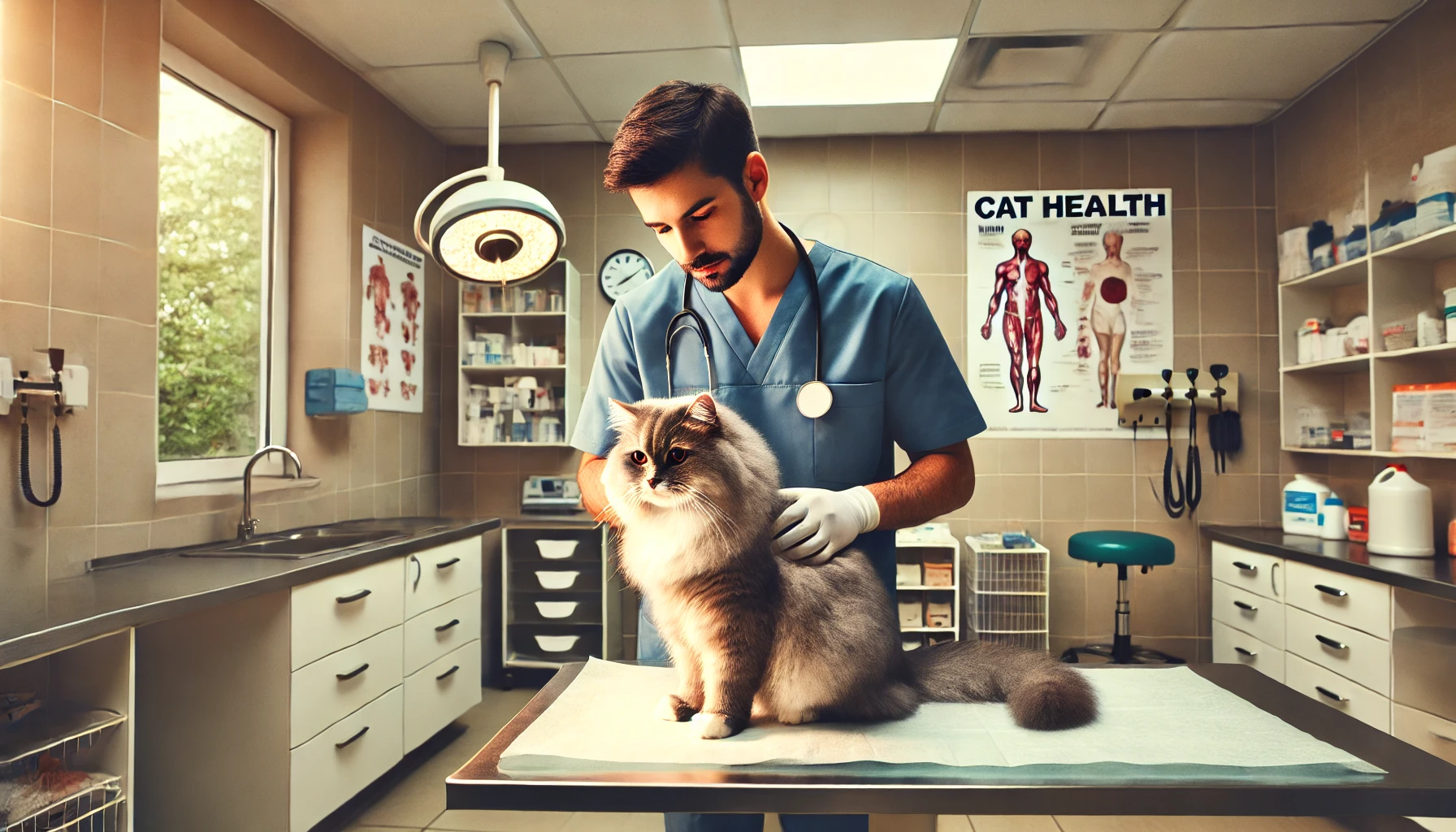
what Causes of Bad Odors in Cats?Cats are known for their cleanliness, yet sometimes they can emit unpleasant odors. This extensive guide explores the various causes of bad odors in cats, from medical issues to hygiene habits, providing detailed insights and practical solutions.
Common Sources of Odors in Cats
Dental Health
Dental health is a critical aspect of a cat’s overall well-being and can be a significant source of bad odors if not properly maintained. Issues such as periodontal disease, tooth decay, and gingivitis can lead to persistent bad breath, known medically as halitosis, which is often the first sign noticed by pet owners.
Bad Odors in Cats with poor dental health may exhibit symptoms including red, swollen gums, tartar buildup, drooling, and a noticeable reluctance to eat hard foods. These dental issues can cause a range of smells from mildly off-putting to intensely foul, depending on the severity of the condition. The odors arise from bacteria in the mouth that flourish when dental health is compromised. These bacteria not only produce sulfur compounds that cause bad breath but can also lead to more serious health issues as they enter the bloodstream and affect organs like the heart and kidneys.
Skin and Coat Issues
Skin and coat issues are prominent factors that can lead to unpleasant Bad Odors in Cats. Various skin conditions such as allergies, infections, and seborrhea can cause a cat’s skin to emit foul smells. These odors often arise from yeast or bacterial overgrowth, which thrive in the moist environments of poorly maintained coats or skin folds.
Common Skin Conditions Affecting Cats
- Allergies: Cats can develop allergies to food, environmental triggers, or flea bites. These allergies often lead to dermatitis, which can cause the skin to become red, itchy, and oily, producing a musty smell.
- Fungal Infections: Ringworm, a common fungal infection in cats, not only affects the appearance of the coat but can also give off a distinct moldy odor.
- Bacterial Infections: Pyoderma, or bacterial skin infections, can result in skin that smells rancid due to the presence of pus and the breakdown of skin tissues.
- Seborrhea: This condition, akin to dandruff in humans, involves an overproduction of skin oils and can result in a greasy coat and a strong, unpleasant odor.
Diagnosing Skin and Coat Issues
Veterinary examination is crucial for diagnosing the cause of skin and coat problems. A vet may perform skin scrapings, fungal cultures, or allergy tests to determine the underlying cause of the skin disorder and the associated smell.
Treatment Options
Treatment depends on the underlying cause but may include:
- Medicated Shampoos: Specially formulated shampoos can help cleanse the skin and coat, remove excess oil, and kill off harmful bacteria or fungi.
- Topical and Oral Medications: Antibiotics, antifungals, or anti-inflammatory drugs can be prescribed based on the specific condition.
- Dietary Changes: Incorporating omega-3 fatty acids and other skin-nourishing nutrients can improve coat health and reduce skin problems.
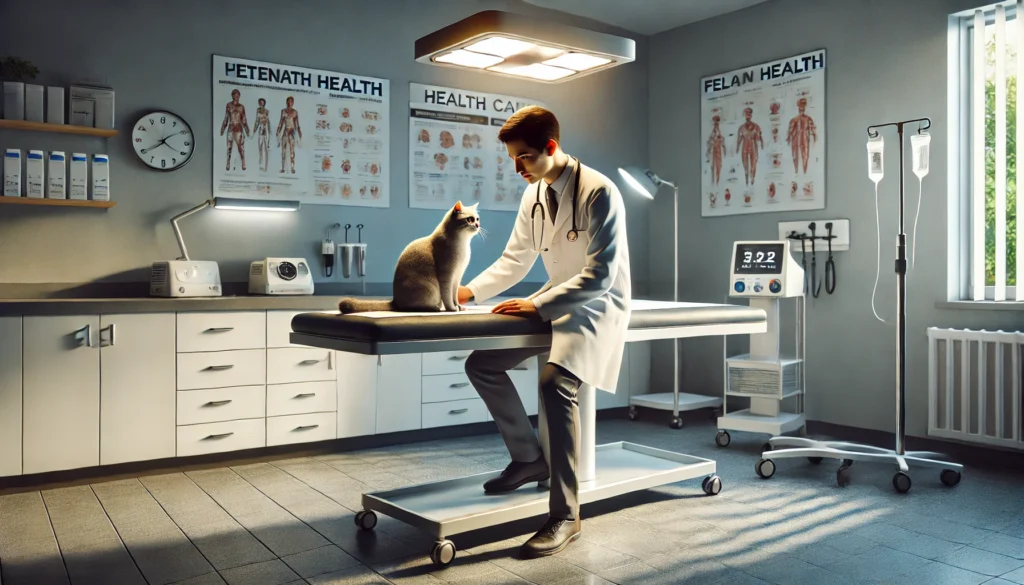
Preventative Care
Regular grooming is essential for maintaining skin and coat health. Brushing your cat regularly helps distribute natural skin oils, remove dirt, and prevent matting. Keeping your cat on a balanced diet rich in vitamins and minerals supports skin health and can prevent allergic reactions and other skin conditions.
Ear Conditions
Ear conditions are another common source of bad odors in cats. Issues such as ear infections, ear mites, and excessive wax build-up can lead to odors that are both unpleasant and indicative of underlying health problems. Prompt diagnosis and treatment are essential to prevent these conditions from worsening and causing more serious complications.
Common Ear Problems in Cats
- Ear Infections (Otitis Externa): Infections in the outer ear canal, often caused by bacteria or yeast, can produce a strong, foul odor. Symptoms include head shaking, scratching at the ear, redness, and discharge.
- Ear Mites: These tiny parasites are a common cause of ear discomfort and can lead to bacterial infections if not treated. They produce a characteristic dark, coffee ground-like discharge that has a pungent smell.
- Wax Build-up: Some cats naturally produce more ear wax, which can trap bacteria and lead to infections if not regularly cleaned.
Dietary Influences on Odor
Diet plays a crucial role in the overall health of cats, including how they smell. The type of food cats consume can significantly impact their breath, Bad Odors in Cats, and the smell of their urine and feces. Understanding how different dietary components affect these odors can help cat owners make informed choices to ensure their pets remain healthy and odor-free.
Impact of Diet on Feline Odors
- Protein Source and Quality: High-quality protein sources are easier for cats to digest and metabolize, resulting in less pungent fecal odor. In contrast, diets high in poor-quality proteins can lead to stronger, more offensive smells because they are harder for Bad Odors in Cats to digest and more likely to ferment in the gut.
- Carbohydrate Content: Bad Odors in Cats are obligate carnivores, which means their digestive systems are not designed to handle high levels of carbohydrates effectively. Diets with excessive carbohydrates can lead to fermentative digestion and gassiness, contributing to unpleasant odors.
- Hydration: Adequate water intake is essential for preventing strong urine odors. Cats that consume mostly dry food may not get enough moisture, leading to more concentrated urine, which can be particularly pungent. Wet food diets or adding water to dry food can help mitigate this issue.
Medical Conditions Leading to Odors
Several medical conditions can lead to distinct Bad Odors in Cats, affecting their breath, urine, feces, and overall body odor. Recognizing these odors and understanding their potential causes is crucial for early detection and effective management of underlying health issues.
do you know
Our cat is vomiting blood, it’s considered a serious condition and requires immediate veterinary attention, as it could be caused by a range of issues including: gastrointestinal ulcers, foreign objects swallowed (like bones or string), inflammatory bowel disease (IBD), dental disease, viral or bacterial infections, liver or kidney disease, blood clotting disorders, poisoning (like rat poison), tumors, trauma, or severe vomiting.
Common Medical Issues and Associated Odors
- Kidney Disease: One of the most serious health issues that can cause Bad Odors in Cats is kidney disease. As kidney function declines, the ability to filter waste from the blood diminishes, leading to a buildup of toxins. This condition often results in a strong ammonia-like smell in the urine, as well as a metallic odor in the breath.
- Diabetes: Cats with diabetes may have sweet-smelling or fruity breath, a result of excess ketones in their system. Additionally, diabetes can lead to more dilute urine that might have a stronger odor due to the increased volume and presence of sugars.
- Liver Disease: Liver issues can cause a musty odor in the breath due to the buildup of mercaptans and other toxins that the liver normally breaks down. These substances can also alter the smell of a Bad Odors in Cats.
- Dental Disease: As noted earlier, dental problems like gingivitis, periodontitis, and tooth abscesses can lead to very bad breath. Infected teeth and gums often emit a foul, decaying smell.
- Infections: Bacterial or fungal skin infections can create distinct smells, often yeasty or putrid, depending on the type of infection. Ear infections are particularly notorious for producing a strong, unpleasant odor.
- Gastrointestinal Issues: Conditions affecting the gastrointestinal tract, such as inflammatory bowel disease or Bad Odors in Cats infections, can cause foul-smelling feces. Malabsorption or digestive disturbances can lead to feces that are not only smelly but often greasy and poorly formed.
Conclusion
Understanding the causes of bad odors in cats is crucial for maintaining not only the cleanliness of your home but also the health and well-being of your feline companion. From dental issues to dietary habits, skin conditions, and more, various factors can contribute to unpleasant smells. It’s important for cat owners to stay vigilant and proactive in recognizing the signs of potential health problems that may be signaled by these odors.Regular veterinary check-ups are essential to diagnose and treat underlying conditions effectively. Adequate grooming, proper diet, and good litter box hygiene play significant roles in managing and preventing bad odors. By addressing these factors, cat owners can ensure their pets remain clean, healthy, and free from offensive smells. Additionally, understanding and mitigating these odors can greatly enhance the bond betweenBad Odors in Catss and their owners, creating a more harmonious living environment.
Why does my cat emit a foul odor?
Bad odors in cats can originate from various sources, including dental issues, skin infections, ear problems, or anal gland complications. If your cat emits a foul odor, it could be a sign of underlying health issues that need immediate attention. Dental problems like gingivitis or periodontal disease can cause significant halitosis (bad breath), while skin conditions or infections can lead to a musty or pungent body odor. Additionally, poorly maintained ears or impacted anal glands can emit particularly strong odors. It’s essential to identify the source of the odor, as effective treatment depends on addressing the underlying cause.
Why does my cat have a bad sense of smell?
While it’s relatively rare, bad odors in cats can sometimes affect their sense of smell. If a cat has a nasal infection or a blockage, it may impact their ability to smell properly. Conditions like chronic rhinitis or sinusitis can cause a buildup of debris in the nasal passages, leading to a diminished sense of smell. Additionally, some systemic diseases or age-related degeneration can also impair olfactory function. If you notice changes in your cat’s behavior related to food or its environment, along with bad odors, a veterinary checkup is advisable to diagnose and treat the underlying condition.
How do I stop my cat from being smelly?
To address bad odors in cats, start with a thorough veterinary examination to rule out medical issues like dental disease, skin infections, or ear problems. Maintaining regular grooming routines can also help manage odors. Brush your cat’s coat frequently to remove dirt and spread natural oils, bathe your cat if recommended by a vet, and clean its litter box regularly to control odors. Additionally, ensure your cat’s diet is balanced and high in quality, as poor diets can contribute to bad breath and body odor. Sometimes, adding supplements like omega fatty acids can improve skin health and reduce skin odors.
Why does my cat smell bad down there?
Bad odors in cats coming from the genital or anal area can be particularly concerning. This could be due to infections, anal gland issues, or urinary tract problems. Anal glands, when impacted or infected, can emit a very strong, unpleasant odor and should be examined by a veterinarian. Urinary infections or incontinence can also lead to foul smells if urine soils the fur. Regular grooming and veterinary check-ups can help identify and treat these conditions promptly, ensuring your cat stays clean and healthy.
How do you get rid of smelly cat glands?
Bad odors in cats often originate from the anal glands when these glands become impacted or infected. Treatment involves expressing these glands to relieve the buildup of secretions—a procedure that your veterinarian can perform. In cases of infection, your cat might require antibiotics or other medications. To prevent future issues, ensure your cat maintains a healthy diet with sufficient fiber, as regular bowel movements can help naturally express these glands. Regular vet visits are essential to monitor and manage gland health, preventing bad odors and discomfort for your cat.
Why does my cat smell sickly?
If bad odors in cats are accompanied by a sickly smell, it could indicate a serious health issue such as kidney disease, diabetes, or infections. Kidney disease might cause a chemical odor due to toxin buildup in the body, while diabetes can lead to a sweet, fruity breath. Infections, whether skin, dental, or internal, can also produce various foul odors. A veterinary examination is crucial to diagnose the underlying cause and begin appropriate treatment, as these conditions can deteriorate quickly and severely impact your cat’s health.
Why does my cat have smelly discharge?
Smelly discharge and bad odors in cats can be symptoms of infections or other medical problems. For instance, vaginal or preputial discharge might indicate infections, while nasal discharge could be a sign of respiratory issues. Discharge from the eyes or ears also requires attention, as these could be signs of infections or blockages. It’s important to consult a veterinarian if you notice any unusual or smelly discharge from your cat, as timely diagnosis and treatment are key to resolving these issues.
Can cats smell health problems?
Cats have an acute sense of smell and can sometimes detect changes in their environment or the health status of others, including humans. While bad odors in cats themselves usually indicate health issues that need addressing, cats might also react to changes in their owner’s scent due to illness. Although not scientifically proven to the extent of dogs’ abilities, anecdotal evidence suggests that cats can occasionally sense illnesses such as diabetes or changes in body chemistry.

